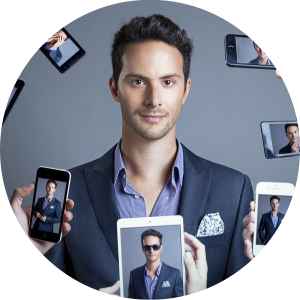
This is the second part of our interview with Chris Valentine, the Producer of the SXSW Startup Village. In the first part, we talked about upcoming trends, AR, and VR. Click here if you’d like to read this post from the beginning.
– Amazing thoughts on where this could lead to. What do you think about big data in terms of personalizing experiences?
I’ve always found big data really fascinating, but I also feel like it’s a really weird kind of line. There is a part where they have all this information about you that’s been plugged in and gathered. They know you like the Nike brand, so they keep pushing Nike products on you. At this point, it certainly becomes an intrusive relationship.
I want to know when the next version of a shoe is coming out, and I know they have information about me based on my spending history, but that doesn’t mean I want to see these ads.
– I think part of the problem is that brands have all this information, but they don’t really know how to leverage it. There are two sides of this story because people are willing to give away data to brands that they like to connect with, but only if they get something in return. People need some sort of incentive; they need to know that they will get a better experience in their end of the barter. If I want to know when the new shoe is coming out that’s fine, but if I’m not interested in that then give me something else…
– This intrusiveness with data is the part that people struggle with. It’s similar to TV ads.
We all want to watch television or YouTube without commercials, but somebody has to pay for it, so at a point, some of my time is going to be tied to commercials. This is why there is intrusiveness in the nature of what they are trying to do. They need that data to push things to you to continue reinforcing their brand.
But do I want to give them this information? There’s a part of me that likes that they can say, “Hey you bought this so you should know about this new product”. On some levels, on the same channel, like on Amazon’s site, I’m ok with it. But if I’m getting push notifications or I’m visiting another site and suddenly there’s an ad for that Nike shoe, it’s a different story. It’s a really weird relationship.
Everybody is collecting, retargeting data and personalizing ads. Maybe you don’t connect with it and feel a little bit creepy about it. But wouldn’t that change if Nike’s website could give you a better experience based on the information about the sports you like or your favorite football teams?
Then I’m excited about it. At that point, I’m trying to make a decision as quickly as possible, so I can get out of that experience. If I could get to the things that I’m looking for easier, that would be great. When I shop, I want to go from point A to point Z and get out as quickly as possible, even if I miss opportunities.
So if they are collecting data to help that experience move quicker I’m completely happy with it. In this case, I actually want to see a pop-up saying, “Hey, Chris do you like this? Have you thought about this shoe ?” But they have to already have that permission in that relationship.
– I think this is what they should be doing with the content on their websites, and not only on e-commerce sites but on news portals as well. We have so much information that we have to look at every day. It would be great if they could determine what interests you…
Exactly. I mean to buy a new car in the next couple of months, and there’s a part of me that doesn’t want to go through that experience. I just don’t want to talk to salesmen.
The other day, I saw an article about the top ten cars that fit into the price category that I was looking for. I saved that post and I’m going to look at it later, but I wish there was data that could streamline this process.
We’re always concerned about time, especially if you have more responsibilities. When you have a family that you marry into, you have kids, you’ve got work, you’ve got friends, you’ve got all these different types of responsibilities that pull you in different directions.
Big data might be able to make our lives easier, and there are different kinds of ways that data can do that, for example with tax declaration. And there is the enterprise data part and all these businesses that are being built on it.
There was a startup company at the SXSW Accelerator event called BreathWise that helps companies manage and model the gas consumption of large vehicles, saving hundreds of millions of dollars with this process. And there’s another startup company from SXSW Accelerator called Preteckt that was focusing on being able to track the condition of cargo trucks, like what kind of repairs they are going to be needing.
If those trucks are not moving, their owners are losing money. But if they could know that the truck was going to have issues, and would be able to fix those things before, all of a sudden they would have a much higher revenue.
So there are so many plays with enterprise data… There’s so many uses and so much potential for it that’s it’s just incredible and that’s the part that gets me excited.






1 comment
Write a comment